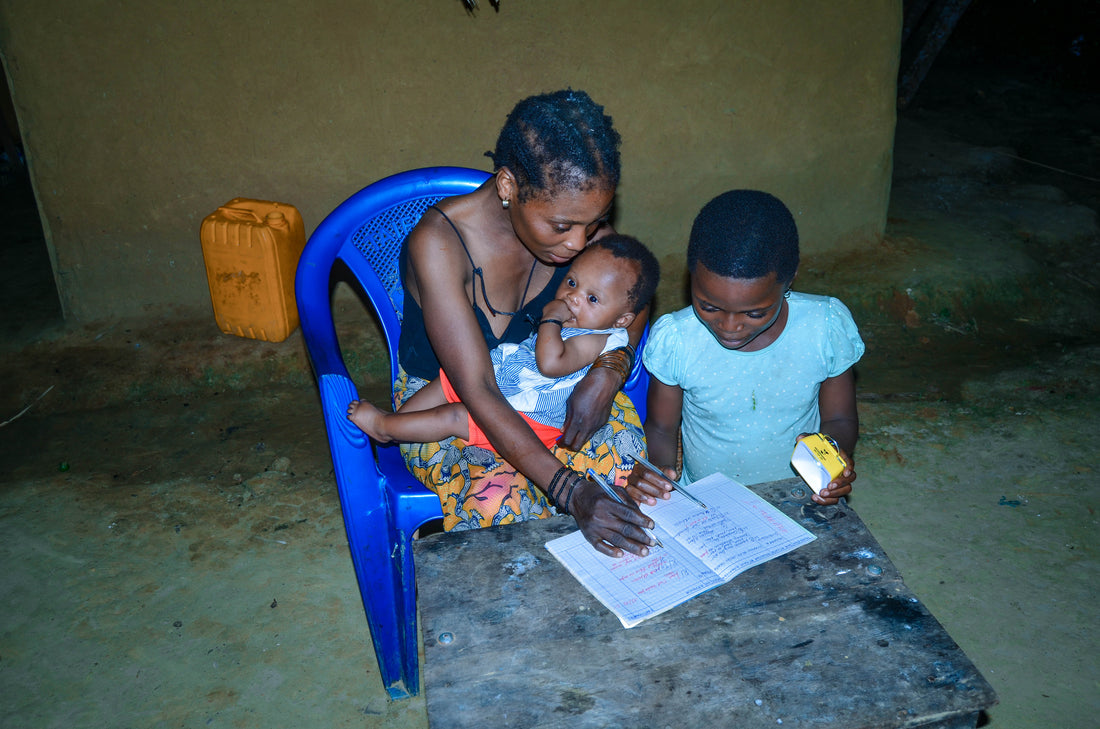Table of Contents
- The Significance of Reading for Children
- The Power of Literacy Programs in Education Accessibility
- Brother4Change: Empowering Through Education
- Final Thoughts
In a constantly evolving world, the ability to read is not just a skill but a fundamental passport to countless adventures and opportunities. The act of reading exposes individuals to a plethora of adventures and challenges, shaping their lives in profound ways. It is a gateway to knowledge, a catalyst for personal growth, and a source of boundless inspiration.
The ability to read cannot be overstated, and it plays a role in shaping our children's future. In this article, we will see the impact of literacy programs on education accessibility and how organizations like Brother4Change are making a difference in the world with the power of literacy.
The Journey Begins with Reading
Ability to read is the cornerstone of knowledge acquisition, and it empowers individuals to navigate the complexities of life successfully. It is not merely a hobby or a form of entertainment; it is a powerful tool with the potential to shape a child's imagination, knowledge, and future. The ability to read opens doors to endless possibilities and opportunities, fostering a love for books, enhancing language skills, and promoting critical thinking.
The Significance of Reading for Children
Why every child must know to read and write? Let's delve into the reasons:
1. Development of Language Skills
Reading plays a pivotal role in developing language skills in children. It exposes them to various vocabulary, sentence structures, and literary styles.
Children learn new words, enhance their communication skills, and develop a rich and varied vocabulary that aids in effective self-expression. Ability to read also improves their understanding of grammar and syntax, contributing to better writing and verbal abilities.
2. Imaginative and Creative Stimulation
Books have the remarkable ability to ignite children's imagination and creativity. When engrossed in a story, children visualize scenes, characters, and settings, creating vivid imagery that enhances their creative thinking.
This imaginative stimulation allows children to explore different worlds, cultures, and perspectives, fostering empathy and broadening their understanding of the world around them. It encourages them to think beyond the ordinary, nurturing their creativity and inspiring them to dream big.
3. Expansion of Knowledge and Understanding
The power of literacy cannot be underestimated anymore because with proper knowledge you can bring a positive influence on kids. Books serve as a gateway to knowledge and information. They expose children to various topics, ranging from history and science to fantasy and adventure.
Reading non-fiction books broadens their knowledge base, while fictional stories offer insights into different cultures, emotions, and experiences. This expansion of knowledge leads to a better understanding of the world and cultivates a sense of curiosity and a thirst for learning that extends beyond the pages of a book.
4. Development of Critical Thinking
Have you ever heard of social literacy? Reading encourages critical thinking skills and social literacy in children. As they engage with a story, they analyze characters' motivations, interpret events, and make connections between different parts of the narrative.
They learn to question, evaluate, and draw conclusions, developing their analytical and reasoning abilities. This critical thinking extends beyond the realm of books, helping children make informed decisions and solve problems in their daily lives.
5. Emotional and Social Development
Books are powerful tools for emotional and social development. They introduce children to various emotions, helping them understand their feelings and empathize with others. Reading fictional stories allows children to enter the characters' shoes experiencing their emotions and challenges.
Many story characters are role models for children that teach them important values, resilience, and moral lessons. Additionally, reading can be a shared experience, as parents, siblings, or friends read together or discuss books. This shared reading strengthens bonds and encourages social interaction, communication, and exchange of ideas.
6. Academic Success To Increase Power Of Literacy
Reading is an essential skill for success. It is the foundation for learning in various subjects, including language arts, science, and more. Proficient readers have an advantage in school, as they can comprehend and analyze complex texts, participate actively in discussions, and excel in written assignments.

The Power of Literacy Programs in Education Accessibility
While the benefits to read and write for children are clear, the challenge lies in ensuring that every child has access to books and the opportunity to develop a lifelong love for reading. This is where literacy programs come into play.
1. Enhancing Access to Books
Non-Governmental Organizations play an important role in addressing the challenge of book access. They improve access to books through various initiatives, including:
- Establishing community libraries, mobile libraries, and book donation drives.
- Setting up libraries in underserved communities, schools, or community centres, providing children access to various books.
- Organizing book donation drives to collect books from individuals, publishers, or businesses and distributing them to schools, community centres, and marginalized communities.
- Creating mobile libraries that travel to remote or marginalized areas, reaching children who may not have easy access to books.
These initiatives ensure that children can access books regardless of socioeconomic background, thus promoting education accessibility.
2. Promoting Reading Programs and Activities
NGOs organize and promote reading programs and activities to engage children and instill a love for books. These include storytelling sessions, book clubs, reading challenges, literary festivals, read-aloud sessions, and interactive activities that make reading enjoyable.
These programs create a positive reading environment, encouraging children to develop a deep appreciation for books and literature. Workshops focus on building reading skills, comprehension, and critical thinking, making reading more accessible.
3. Collaborating with Schools and Educational Institutions
NGOs collaborate with schools and educational institutions to integrate reading and literacy promotion into the curriculum. By organizing workshops, author visits, and book-related events, NGOs enhance the reading experience and make it an integral part of the learning process. Partnering with schools allows NGOs to reach a more significant number of children and create a sustained impact.
4. Empowering Educators and Parents
Organizations provide training and resources to educators and parents, equipping them with the tools and knowledge to foster a love for books and literacy in children. Workshops and professional development programs help educators incorporate innovative reading strategies into their teaching methods.
Parent education sessions emphasize the importance of reading at home and offer guidance on creating a reading-friendly environment. This collaboration ensures that the community is actively involved in promoting literacy.
5. Developing Reading Materials in Local Languages
Organizations address the issue of limited access to reading materials in local languages by creating and distributing books and resources that reflect the children's cultural context. This makes reading more relatable and encourages children to embrace their culture while developing literacy skills.
6. Leveraging Power Of Literacy
NGOs and organizations harness the power of technology to foster a love for books and literacy among children. This can be achieved by developing educational apps, digital libraries, and online reading platforms. By making reading materials accessible through digital means, NGOs reach children in remote areas or those with limited resources, ensuring equal opportunities for literacy development.
7. Community Engagement and Advocacy
NGOs engage with communities to create a culture of reading and literacy. By organizing community-wide reading campaigns, book drives, and literacy awareness programs, they generate excitement and involvement from all segments of society. They also advocate for policies and funding prioritizing literacy programs in schools and communities, driving systemic change and sustainable impact.

Brother4Change: Empowering Through Education
Brother4Change is a prime example of an organization committed to making a difference through education. Our Empowerment Program allocates 10% of purchase profits to enhance learning opportunities for students in developing countries.
In a world that thrives on knowledge and information, the power of literacy cannot be underestimated. Reading is the key that unlocks doors to opportunities, broadens horizons, and nurtures young minds. The impact of literacy programs on education accessibility is profound, as organizations like Brother4Change work tirelessly to ensure that every child, regardless of their background, has the chance to embrace the joy of reading and the lifelong benefits it brings.
Final Thoughts
As we celebrate the power of literacy and its transformative role in children's lives, let us continue to support organizations dedicated to promoting reading for all. Together, we can ensure that every child has the opportunity to embrace a lifelong journey of learning, discovery, and empowerment. The love for books and the ability to read enrich individual lives and contribute to developing more compassionate societies.

